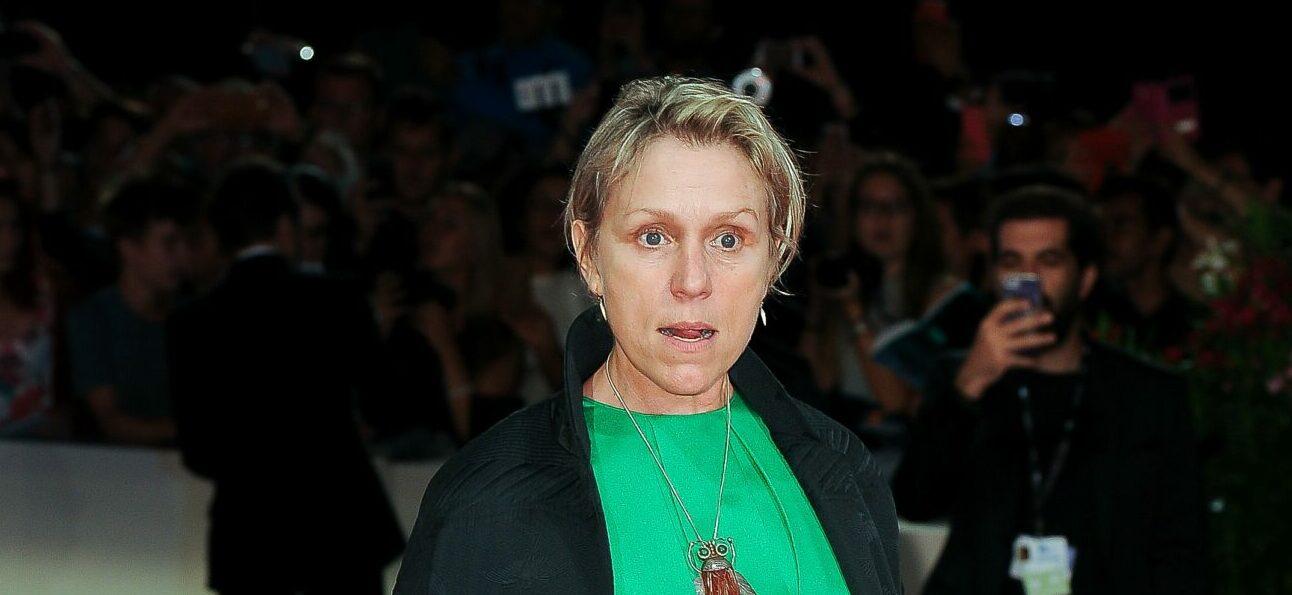
Frances McDormand’s Nice and All-Knowing Narration In 'Good Omens'
By Kim Handysides on January 2, 2023 at 9:00 PM EST
In her role as God in 'Good Omens,' 4-time Oscar winner Frances McDormandis our narrator. She’s there from the very beginning - and will likely be there for the very end. It’s a symmetry made abundantly clear in the first few minutes of screen time. If it isn’t immediately apparent, symmetry is an overarching theme throughout Good Omens - a fact made clear from the very name of the series.
Symmetry is the Theme of McDormand’s Quirky Narrations
Neither side is perfect, and neither is so flawed that it’s irredeemable. Our narrator doesn’t pick sides - she just tells us about them and the role each of them plays. She points out in the first episode - people make mistakes. Angels, demons, and humanity - constantly make mistakes throughout the entire series. That’s why God doesn’t talk about good or evil as prevailing forces. She doesn’t condemn or condone anything. In fact, she’s kind of hands-off - and most of the conflicts (and resolutions) are because of that.
On the surface, it might seem borderline neglectful, but if the events of Good Omens are any indicator, even God’s vaguest plans, and foreshadows, are taken as definitive facts without nuance.
The Narrator has a Dry Sense of Humor
The manner of speaking our narrator uses to tell her story, the filterless way she tells us her thoughts and feelings on matters - it’s all indicative of a creator with a sense of humor. She begins her narrations by confirming the age of the world, down to the minute, and gives us its star sign - even going so far as to read us its horoscope (the Earth is a Libra, by the way).
She has a dry sense of humor and lets us know that dinosaur bones are a long-game gag left for scientists to figure out and promptly introduces us to the story at hand. She explains the state of the world and establishes the plot for the story, carrying the entire narrative structure of the series as only she can.
The God of Gaiman’s series is chatty and eager to explain things to the people watching. And she spares no attention to detail. Practically narrating the entire introduction to the Amazon Prime series and every moment worth commenting on, she takes a tongue-in-cheek approach to how she uses her voiceovers.
The Narrator Doesn’t Speak to Her Creations
The few times McDormand, as God, speaks to her creations, it’s a one-sided conversation. The one side is her creations running wild and telling each other what they think her plan is.
She’s too revered for her level of sarcasm, and it can be alienating on both sides of the narrative fence. She had to remove herself so far from humanity that nobody knew whether or not she was real. She’s even distanced herself from the angels to the point that she appointed one of them to speak on her behalf. Which, ironically, only leads to more confusion.
She points out time and time again that her divine plan needs to remain unknowable and ineffable - even to the creations sworn to carry it out. In her eternal existence, McDonald’s narrator is ensconced in the creations she brought to life yet enclosed in solitude. She doesn’t ignore her creations out of apathy, but because speaking to them strips the free will from their existence. It’s her own design, and even God can’t interfere with the world she put into motion.
After all, to the best of the audience’s knowledge, this is the first conversation she’s ever had - as one-sided as it might be. McDormand guides us through the story and adds extra detail to every scene she narrates - even when we don’t ask for it when her creations are.
The Narrator is Lonely
If she seems eager to engage with the audience, it’s because she’s talking to a room full of people who can actually hear her objectively for a change. She’s barely interacted with her own creation because the barest interpretations of her words get taken too far each time she speaks them. She isn’t removed from the story because she wants to be - it’s because she has to be.
She’s warm and friendly with a dry sense of humor - but sarcasm doesn’t exactly work when you’re the divine creator of everything. This explains why she’s so eager to explain every little detail to the audience - she’s lonely.
Neil Gaiman’s Use of Narrators
Whether it’s his writing style - or a testament to it - there’s something about Neil Gaiman’s writing that almost always translates into using a narrator when the big screen adapts his work. It’s the literary building block of nearly all his work. His narrators are often larger-than-life ephemeral beings equipped with omniscient perspectives - yet somehow never the same. Where some writers use narrators as a crutch to support their world-building and eliminate extra dialogue, Gaiman embraces the narrator as their own distinct character.
And who better to narrate the story of the beginning, the end - and everything in between - than God herself?
Kim Handysides is an award-winning voice artist and coach. Among her 20K+ narrations, you have heard her on Discovery, Netflix, and the major networks, in iMax, the White House and the Smithsonian.
